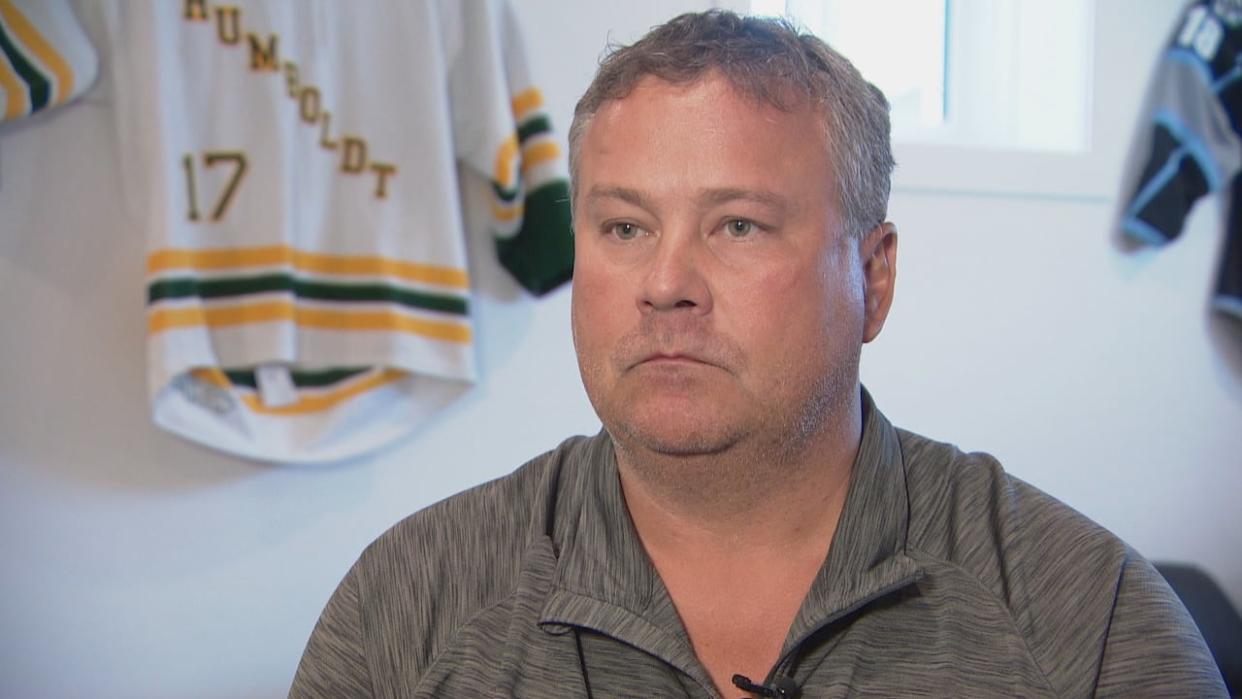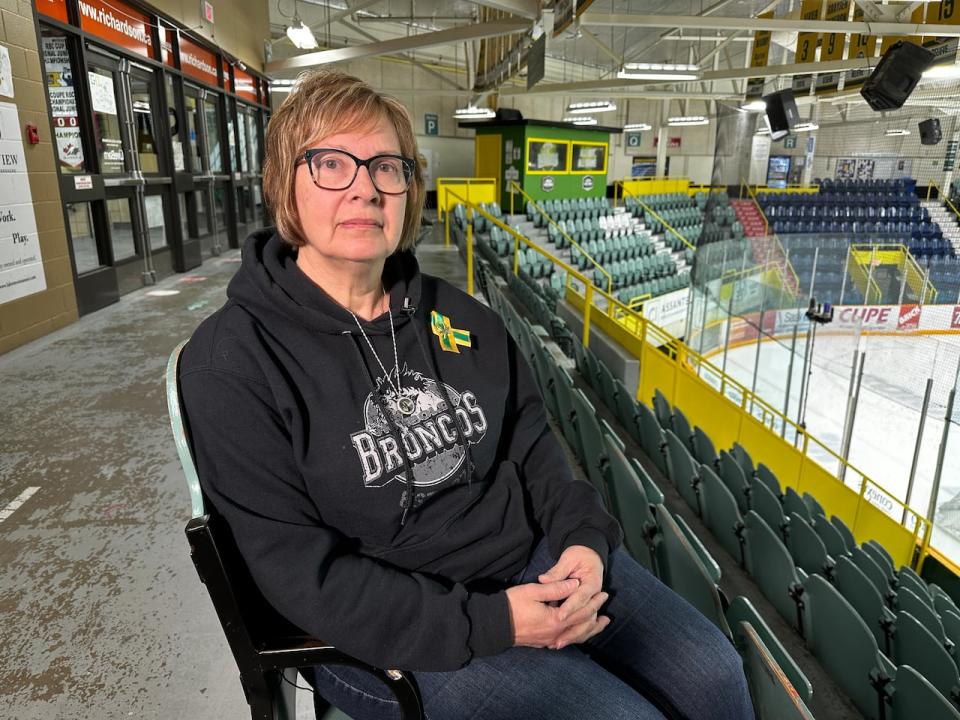Families of Humboldt Broncos crash victims say they're shocked after province relaxes some licensing rules

The father of one of the victims of the 2018 Humboldt Broncos bus crash says he and other families of victims worked for years to get better regulations in place for foreign truckers — and a recent change by the Saskatchewan government is a step backward.
It's "the complete opposite of what we've been mandating for these last five or six years," said Scott Thomas.
His son, Evan Thomas, was among the 16 people killed in the April 6, 2018, crash, when an inexperienced truck driver went through a stop sign at a highway intersection near Tisdale, Sask., and into the path of a bus carrying members of the Humboldt Broncos junior hockey team.
Another 13 people were injured.
In the aftermath of the crash, the provincial government promised to change the rules for foreign workers driving trucks on Saskatchewan roads. They changed them in 2021, prohibiting all non-residents, including foreign workers, from driving on out-of-country Class 1 licences — the type of licence that allows driving a semi.
Now, however, the province has relaxed the rules for temporary foreign workers in the agricultural sector.
Documents obtained by CBC News reveal the province is allowing foreign agriculture workers from 40 countries to drive on their home country's licence for up to a year, until May 21, 2025.
Those countries include several European countries, the United Kingdom, Australia, New Zealand, Portugal and Taiwan.
Dustin Duncan, the minister responsible for Saskatchewan Government Insurance — which handles driver licensing in the province — confirmed the exemption was made to help the agriculture industry, which relies on foreign workers.
He said workers who come to Saskatchewan after working in the agricultural sector in the Southern Hemisphere don't have enough time to complete mandatory training to get a Saskatchewan Class 1 licence before seeding begins.
To get a Class 1 commercial licence, drivers in the province normally have to complete the more than 120-hour mandatory entry-level training, or MELT, program, which came into effect in 2019.
"We're trying to strike that balance with ensuring that we have a MELT program that is very rigorous, but also trying to balance that off with allowing for temporary foreign workers from a limited number of countries that we have reciprocal licensing agreements with," said Duncan.

Dustin Duncan, the minister responsible for SGI, says the province is trying to balance a 'rigorous' training program with allowing for temporary foreign workers to work in the agriculture sector. (Kirk Fraser/CBC)
But Thomas believes that anybody coming to the province should be held to the same standards.
"I think that opening the door to foreign drivers, just because some government perceived that [they're certified], is not enough. I think that opens a door and becomes a pretty slippery slope," he said.
Thomas said there should have been public consultation before the change was implemented, "whether that's [with] us specifically who lived through tragedies like that, or just the general public — because this is something that affects everybody."
The driver of the truck involved in the Broncos crash, Jaskirat Singh Sidhu, was sentenced to eight years in prison for dangerous driving offences. Last week, the permanent resident was ordered to be deported to India.
'A step back': parent
Carol Brons is the director of Safer Roads Canada, a non-profit that advocates for changes to Canada's commercial licensing system.
She is also the mother of Dayna Brons, the only woman who died in the Humboldt Broncos crash.
She also said the changes came as a surprise — one she finds concerning and disappointing.
"My biggest concern is that it is kind of a step back, in my eyes. I get that they're trying to bring in more workers because of the need, but at what cost is my question? At what cost to the public safety?" she said.

Carol Brons is the director of Safer Roads Canada. Her daughter, Dayna Brons, was one of the 16 people killed in the 2018 Broncos crash. (Sam Samson/CBC)
Brons said that driving rules and conditions not only vary from one country to another — they're not even the same within Canada.
"I think there should be some training — like mandatory training or testing at least, that they have to pass, or something just to prove that they are capable and prove that they understand the different rules" in Saskatchewan, she said.
She believes the province's changes won't make Saskatchewan roads any safer and could, depending on the driver, possibly make them more dangerous.
Brons thinks Saskatchewan's MELT program is a step in the right direction, but says it's only minimum entry-level training.
"It doesn't give you any real experience of driving the truck or semi-trailer. It doesn't give you any experience necessarily across Canada. For me, a graduated licence would be very important," she said.
Brons also wants to see a national Red Seal licensing system, which would get all jurisdictions to agree on certain regulations and set a standard across the country.


